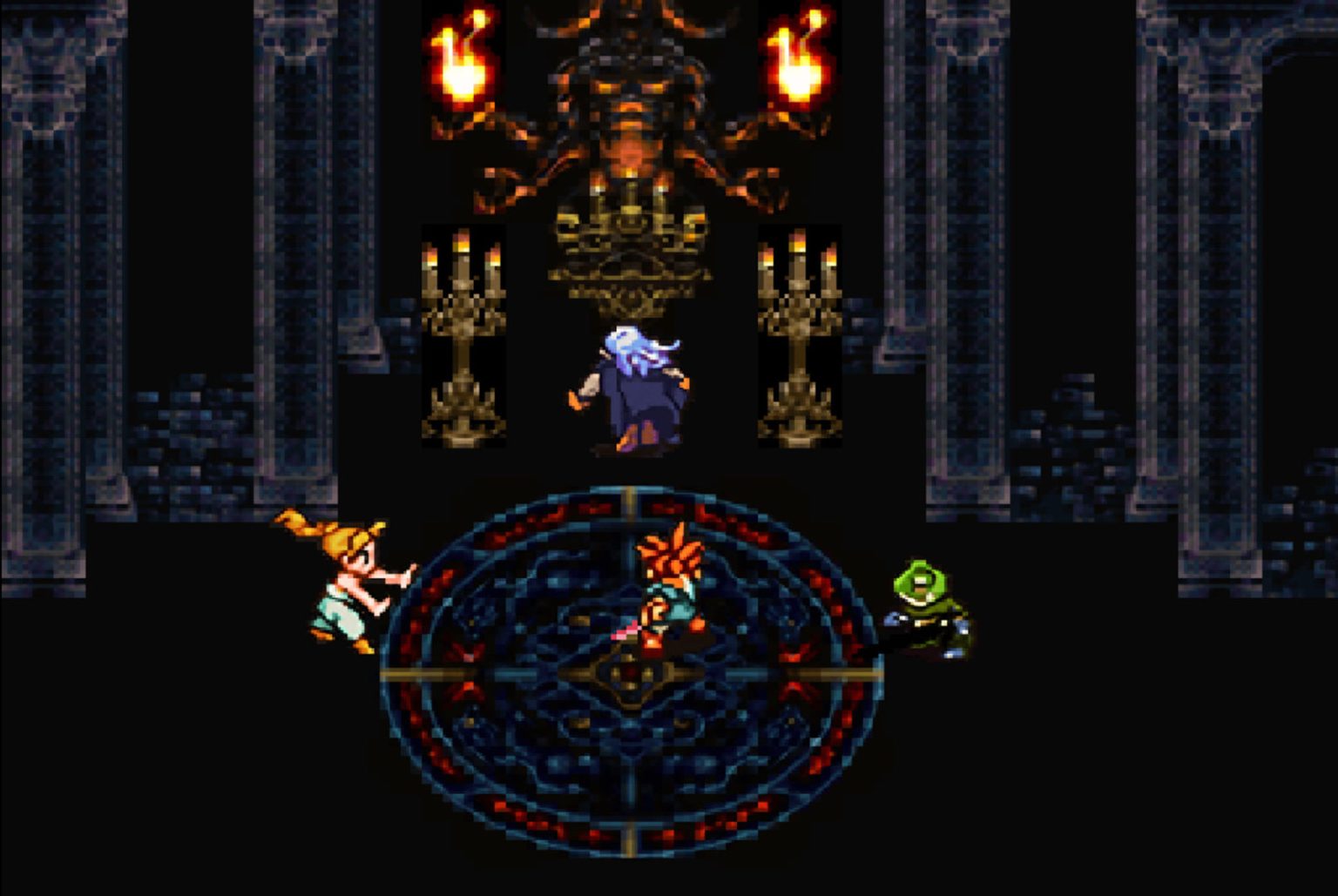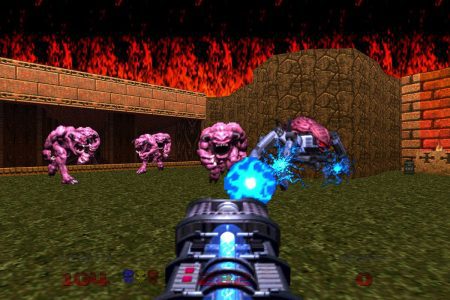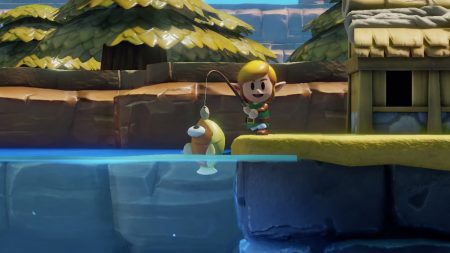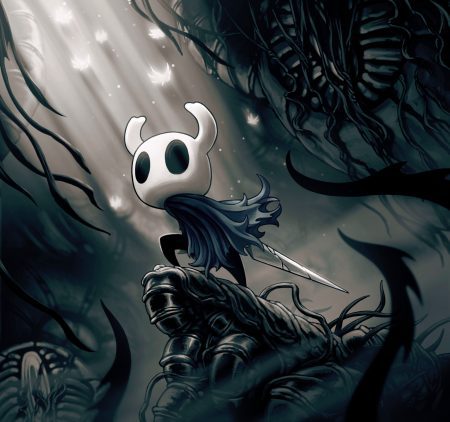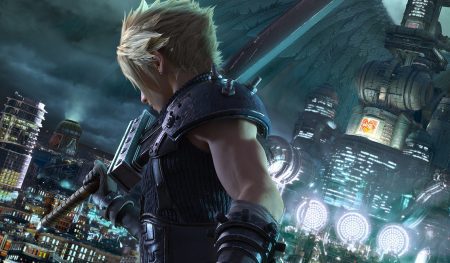What Happens When You Play a Game Decades After Its Height?
Here’s something that everyone on this planet has experienced: Somebody is telling you a story with great enthusiasm hoping to elicit a certain response from you, yet when you hardly react at all, they say, “I guess you had to be there.” It doesn’t matter how funny or interesting the retold events actually were; there’s no way you could possibly appreciate the story as much as they do.
This “you had to be there” element is more prevalent in our enjoyment and consumption of art than many people realize—or care to admit. While the greatest works defy the burdens of time for generations, most books, movies, songs, and video games are largely products of their own respective eras, and it’s difficult to admire them the same way if you’re experiencing them for the first time years or even decades later. You can have a full understanding of a medium and its history and still not fully understand something that came out decades before you saw it. It’s exactly why I’ll never find Some Like it Hot as funny as my parents do and why somebody now will have a harder time getting into the Harry Potter series for the first time if they didn’t read the books when they first came out.
I often wonder how much my opinions on various works of art are determined by not just my own personal tastes and my age at the time of consumption (The Big Lebowski is my favorite movie ever, and I’m not sure it has the same impact on my life if I didn’t see it when I was 14), but rather by whether I experienced something at or near the height of its popularity. Catcher in the Rye is a good book, but would it be my favorite had I read it in the 1950s? I love Bob Dylan’s music, but would The Times They Are A-Changin’ have affected me more if I’d heard it in 1964? I will never know the answers to these questions, and it might be an exercise in futility to even bother attempting to find out.
The “you had to be there” aspect of art and media is particularly true of video games. Some of the cultural shifts in how we evaluate the medium stem from technological innovations: Fortnite wasn’t possible before the advent of online gaming just as Final Fantasy VII couldn’t have happened on a cartridge-based system in the 90s. In other cases, certain games are a product of the cultural mores of their time. For example, Sonic Adventure 2 Battle feels hokey, trite, and ridiculous by today’s standards, but it was absolutely beloved by anybody who played it in the early 2000s.
Each video game is a product and reflection of its time, both technologically and culturally, and as the years go by, we get better at understanding why certain titles were popular (or unpopular) when they came out and whether or not we feel the same way years later. But if you never experienced something when it was most purely in its original time and place, could you ever truly understand it in any time or place?
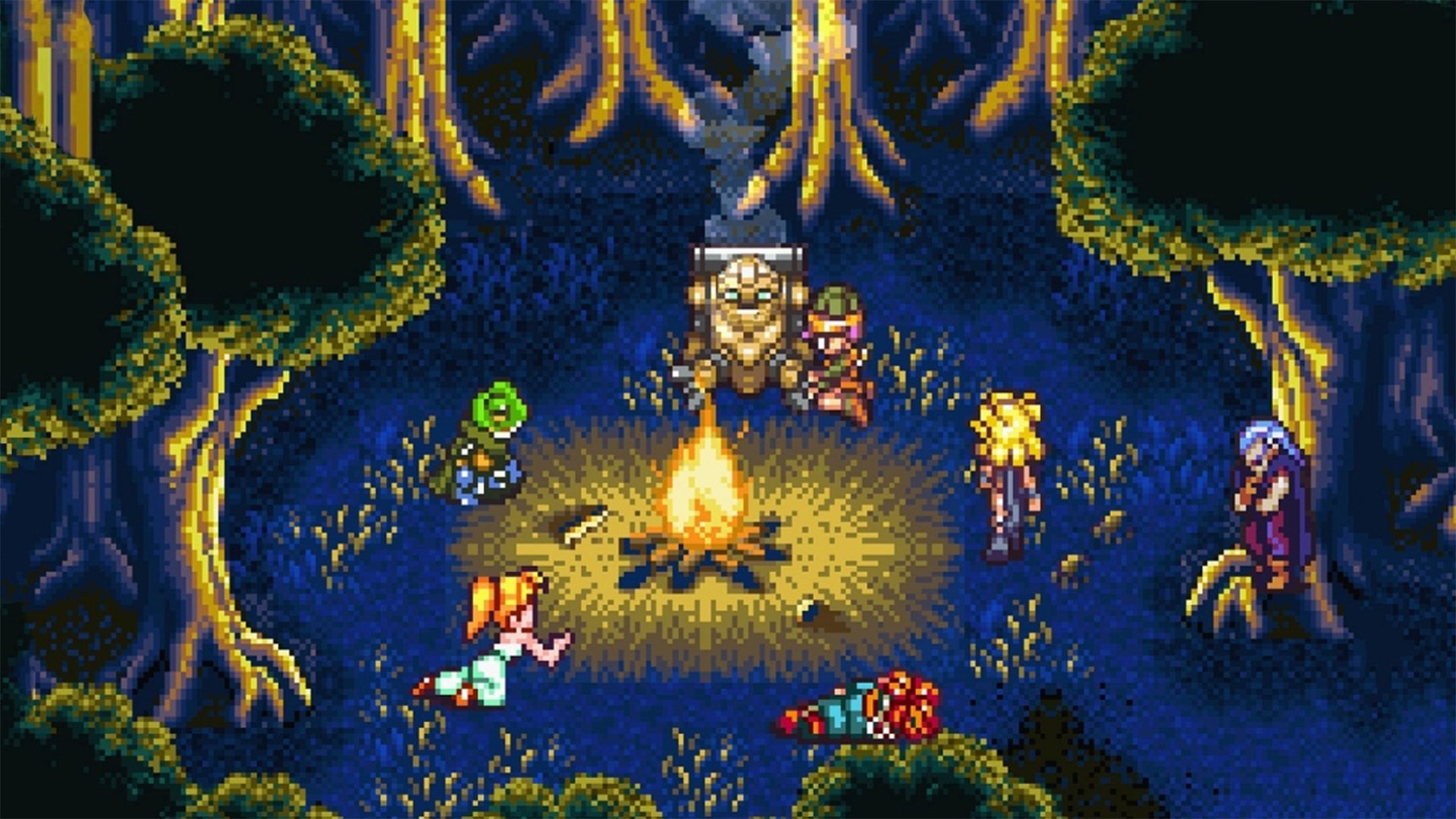
My Issue with Chrono Trigger
If you’re wondering where I’m going with all this rambling, I can summarize this entire essay in one sentence: Having played it for the first time in 2019, I really enjoyed Chrono Trigger even though it’s impossible for me to love it as much as I would have had I played it closer to its 1995 release. (I’ll go on anyway.) I can appreciate the visuals, the music, the characters, the story, and the battle system to an enormous extent, but I will never appreciate any of those things the way YouTuber ProJared does:
Or the way IGN does:
These are the kinds of things I’d say about The Legend of Zelda: Ocarina of Time or Super Mario Galaxy, games that exemplify what I love so much about the art form. As much as I love Chrono Trigger, I don’t feel quite that way about it, but why?
(TO BE CLEAR: This is not an article about whether games like Chrono Trigger hold up, mechanically or otherwise, though I’ve discussed that topic in a different piece. I am specifically discussing how we possibly appreciate works of art differently depending on whether or not we experienced them in their original state and place in time.)
Personally, I didn’t grow up playing JRPGs, and I’ve never been especially fond of them. I often find them to be clunky, overly complex, overwrought, and tediously long. Because of my distaste for the genre, I often viewed the hype around Chrono Trigger the same as if someone were to tell me that I could have the greatest taste of blue cheese around. I hate blue cheese, so even the greatest version of it would be wholly unappetizing to me.
Despite my largely negative view of JRPGs, Chrono Trigger really resonated with me, but mostly because it doesn’t lean quite as heavily on tropes as many of its contemporaries: The battle system is incredibly smooth, actual random encounters are not especially common, I barely had to grind for higher levels, and the story isn’t an overly dramatic mess. Also, the game isn’t particularly long (though it could be a bit shorter). I completely understand why people love this game and often list it as one of their favorite SNES titles, though I would still put it well below the platformers, racers, and fighters I grew up playing on the system.
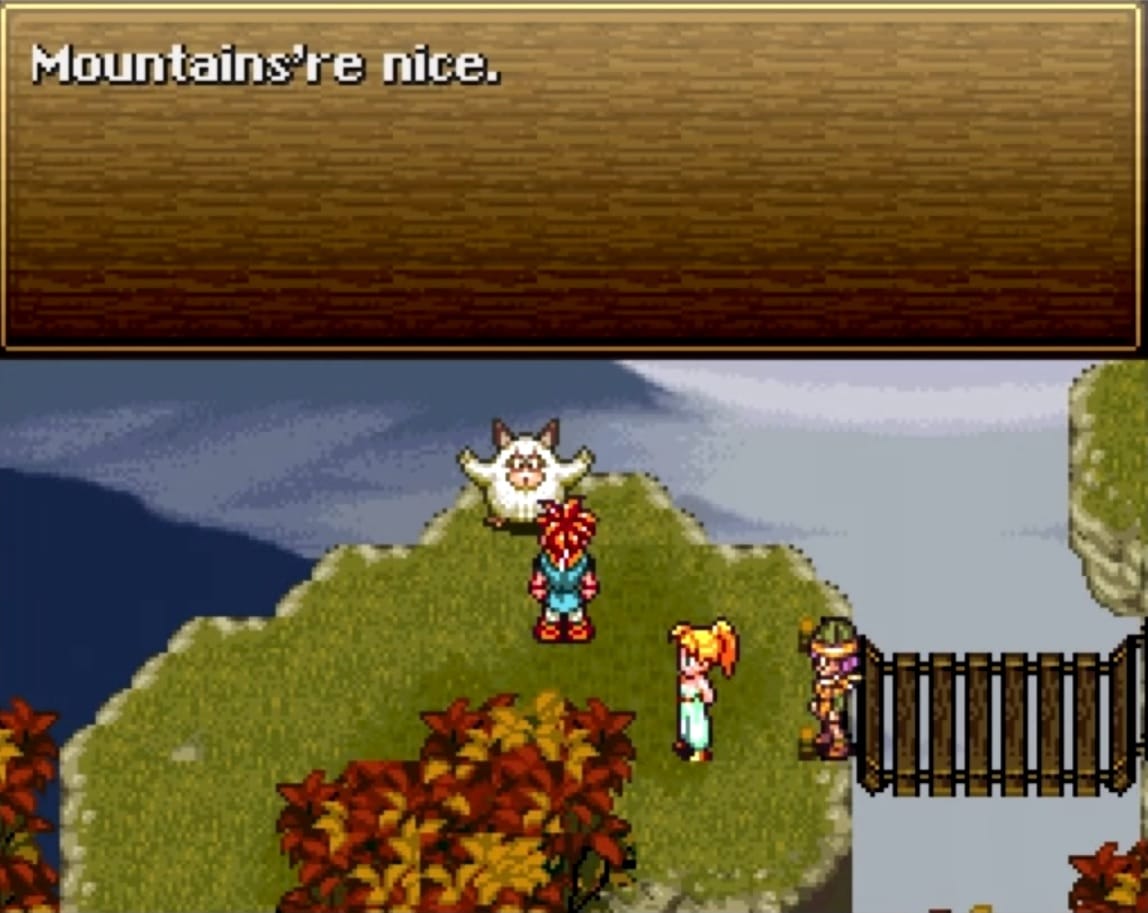
Still, the whole time I played it, something felt missing. Every time I reached a famous moment in the action, I was a little bit underwhelmed. It’s not like “Mountains’re Nice” and the campfire scene didn’t resonate with me at all, but I’ve seen them referenced a billion times in games media, so for some reason I thought they’d be earth-shattering moments, when in reality they came off as touching but not especially affecting. That’s probably on me, as I have to imagine my experiences with highly cinematic and cutscene-heavy games from the past two console generations have in certain ways desensitized me to the relative subtlety of story beats from the SNES era. That said, being told a moment is an incredible moment takes away some of the magic.
I did love the combat mechanics of Chrono Trigger. The active time battle system (and lack of random encounters) make battles smooth and nuanced, and the fact that I can see most potential enemies wandering around allows me to avoid fights if I so please (it also makes grinding, which I only had to do twice in my playthrough, a lot easier). In addition, the puzzle and dungeon crawling elements, which are fairly simple, were just interesting enough to keep me on my toes. Despite all that, however, I couldn’t shake the feeling that even the biggest, most epic boss battles were limited to brief animations and pre-rendered backgrounds and figures. As much as I enjoyed fighting giant monsters, robots, and demons, those moments would have seemed incredible and epic in 1995. Now, they seem more quaint. I didn’t see the epic fights; I saw the quaint ones.
When discussing Chrono Trigger, it’s essential to consider the history of the game itself, as it was not merely another RPG released during the 16-bit generation. Released in 1995, Chrono Trigger was built by a legendary dream team of video game designers, including Final Fantasy creator Hironobu Sakaguchi, Dragon Quest creator Yoji Horii, and Dragon Ball creator Akira Toriyama. Crossovers on that magnitude don’t happen every day in any form of art, and it was even a rarity in its own time. As Kotaku’s Chris Kohler puts it:
Although the game has since been re-released on numerous platforms, there’s only one era in which Chrono Trigger could have been created. Although the lifespan of the Super Nintendo seemed like a long, long time when it was happening, in terms of the history of video game design, it is just a blip, just a brief five-year period when the design skills of almost the entire Japanese game industry were focused like a laser on getting the most out of this capable 2D hardware.
Right there is precisely why I’ll always feel like I sort of missed the boat on Chrono Trigger: Every piece of art in many ways captures a moment in history, and the public perception that follows solidifies that moment, for better or worse. Experiencing that work of art years and years later is like viewing a painting at a museum or watching an old movie on TV: You are seeing something as a distilled and repackaged artifact whose level of importance has already been determined. Even if you understand the history that led up to that work of art, the impact of that history has already subsided; you never truly felt the weight of that history. You can try and find out for yourself why something achieved such acclaim, but you’d be operating backwards.
Chrono Trigger seems like it will exist in some form forever, but never in the same way it existed in 1995. And that’s fine: Everything ages, even the finest works of art, and age doesn’t always erode a work of art’s quality. But since I didn’t grow up playing RPGs in the 90s, and since it took me nearly 25 years to actually play it, I can only appreciate Chrono Trigger and the events leading up to its release from a distance. I can love the moving storylines and sympathetic characters, but my views on the game will always be influenced by the hordes of critics and fans who told me to love this pretty little thing before I even knew what it was. I can try and play the most popular RPGs that came before Chrono Trigger to better understand why it stood out, but my point of view has already been affected by the games I’ve played after. I wasn’t there when Chrono Trigger came out, and I can never be there now.
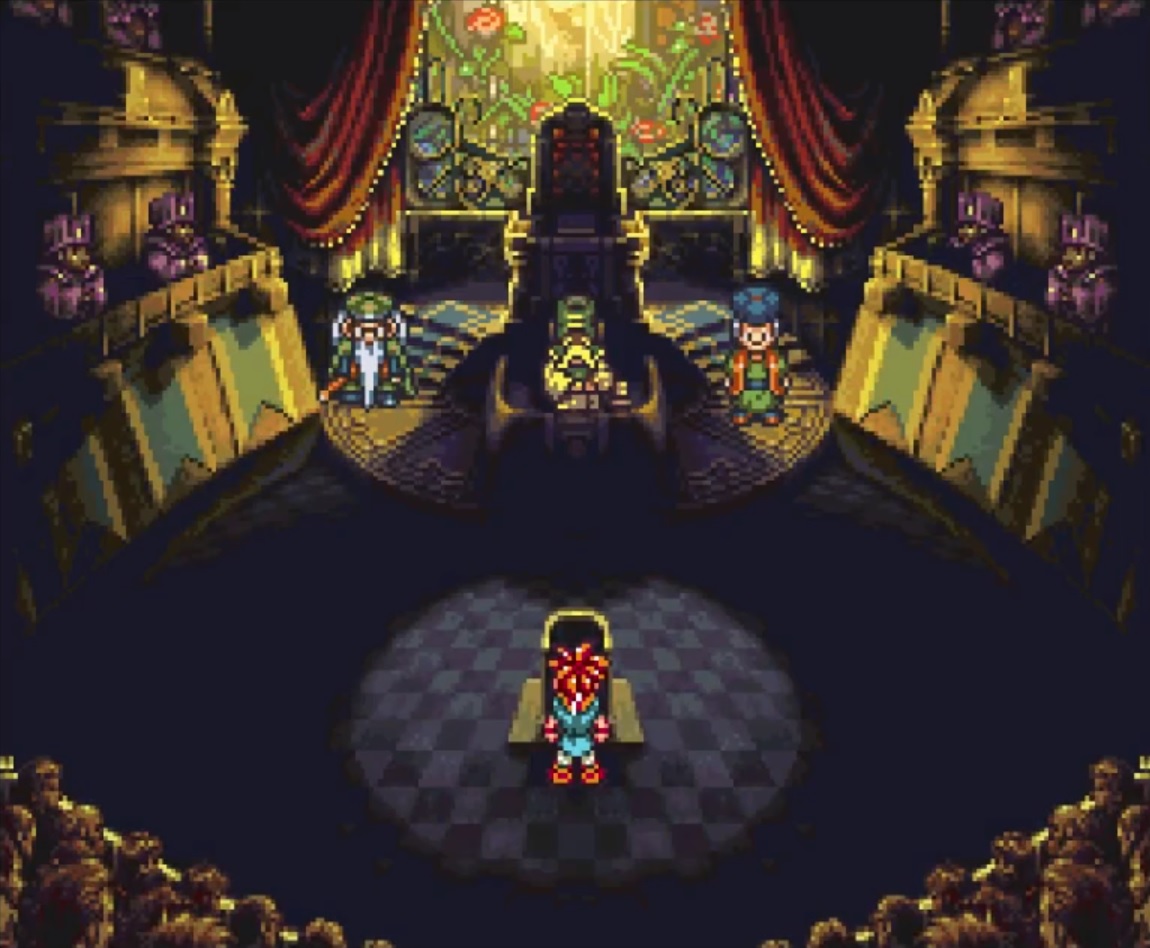
Frozen in Time
Nostalgia is a hell of a drug, man. Because of it, I will always be convinced that the greatest movies of all time all came out in the 90s. I will always view Sonic Adventure 2 Battle as a once-in-a-generation masterpiece, even if it’s almost unplayable by today’s standards. I will never allow for any slander of NSYNC, and I will continue to have arguments with my friends about whether they were better or worse than the Backstreet Boys. I experienced all these things at the height of their powers and truly feel like I understand them in ways many others can’t, no matter how much they may have studied them.
As someone who writes about games, I feel like it’s my duty to educate myself on the history of the medium and experience at least a few minutes of as many classic games as I can. Sometimes, I’ll really latch onto something (like Chrono Trigger) where I can see why it remains a topic of discussion nearly 25 years later. I completely understand why it holds a special place in people’s hearts, and having finally completed it (and gotten a satisfying ending), I can honestly say it’s one of the finest RPGs I’ve played.
Still, I can’t shake the feeling that I still missed out on something. I can’t get past the notion that the game I played isn’t quite the same game that Chris Kohler and ProJared played. Many people think about Chrono Trigger and are swept with emotions, and I know I can never feel the same way. They played it at a time when nothing else was quite like it; I played it after there were dozens of games like it (including a pseudo-sequel). I can sing the praises of Chrono Trigger and call it a timeless masterpiece, but I know deep down that I’d be acting somewhat disingenuously.
I’m glad that I finally tried Chrono Trigger. It’s even inspired me to maybe give other classic JRPGs a chance. It just makes me wonder how I’d feel about it if I’d been gifted it for Hanukkah in 1995 instead of Donkey Kong Country 2. I guess I had to be there.
Sam has been playing video games since his earliest years and has been writing about them since 2016. He’s a big fan of Nintendo games and complaining about The Last of Us Part II. You either agree wholeheartedly with his opinions or despise them. There is no in between.
A lifelong New Yorker, Sam views gaming as far more than a silly little pastime, and hopes though critical analysis and in-depth reviews to better understand the medium's artistic merit.
Twitter: @sam_martinelli.


